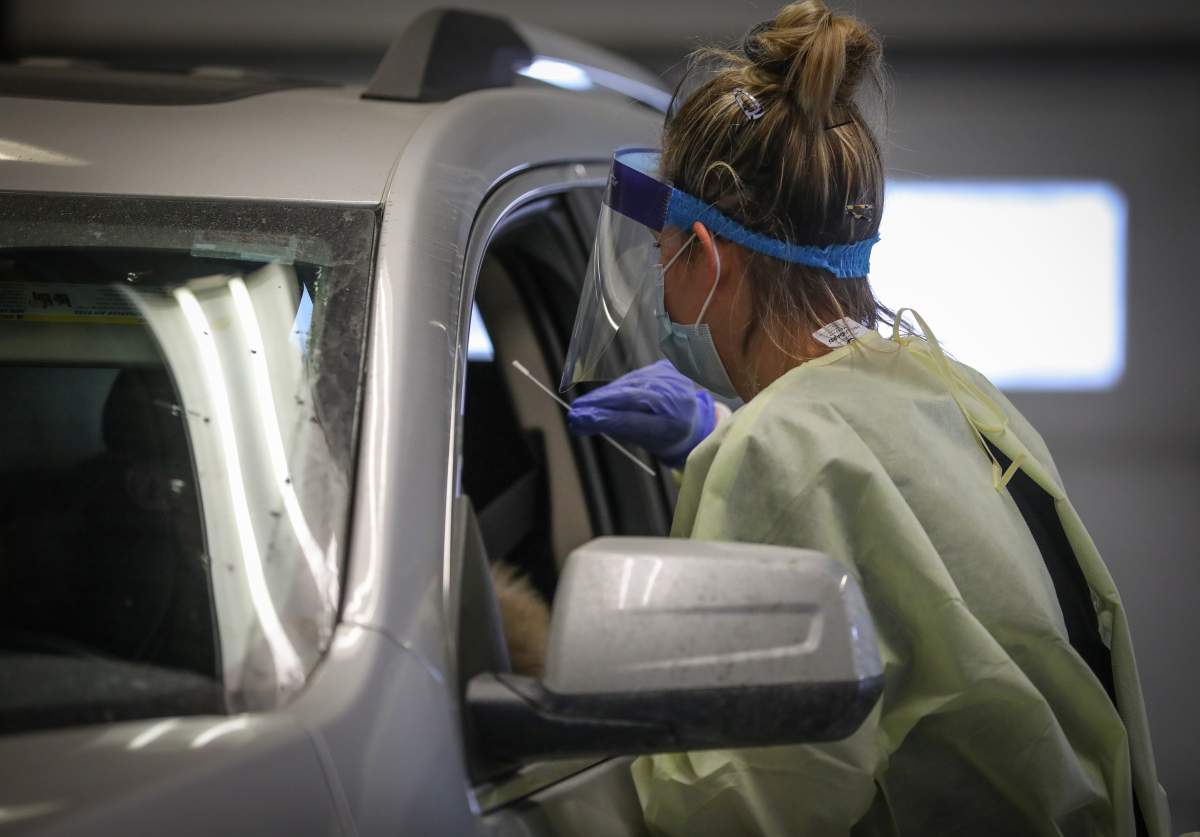Editor’s note: This story originally called Newfoundland a maritime province. It is not part of the Maritimes and this story has been corrected. Global News regrets the error.

Newfoundland and Labrador’s top doctor says workers returning from an Alberta oilsands site with a COVID-19 outbreak should self-isolate and contact public health officials to be tested.
The eastern province announced two more cases of COVID-19 on Thursday, bringing the total to 261 with 244 people recovered.
Dr. Janice Fitzgerald, the province’s chief medical officer of health, said one of the new cases is linked to the Imperial-owned Kearl Lake work site north of Fort McMurray.

Fitzgerald said workers at the Kearl Lake and Horizon sites in Alberta who have returned to Newfoundland and Labrador since April 12 should self-isolate for 14 days even if their COVID-19 tests come back negative.
She said their immediate household contacts should also self-isolate.

Get weekly health news
British Columbia and Saskatchewan health officials have also advised residents returning from the Kearl Lake area to isolate since the outbreak was detected last month.
- Trump slams Canada as U.S. House passes symbolic vote to end tariffs
- ‘We now have to figure out how to live life without her’: Mother of Tumbler Ridge shooting victim speaks
- Carney, federal party leaders to attend Tumbler Ridge shooting vigil Friday
- Mental health support after Tumbler Ridge shooting ‘essential,’ experts say
Fitzgerald said Newfoundlanders are “certainly” among the hundreds of non-permanent Alberta residents who work at the camp and said public health officials want to detect and trace any positive cases linked to the site.
“Because we do need to control the importation of cases, we want to make sure we’re capturing those people as quickly as possible,” Fitzgerald said.

The two new cases announced Thursday follow several weeks with few new infections detected. The province is preparing to relax some restrictions next Monday, while also tightening its border controls.
A ban on entry came into effect Monday, barring anyone besides permanent residents and essential workers from entering the province, unless given a pre-approved exception.
Legislation passed earlier this week strengthened police powers to detain and transport people to exit points while enforcing orders under the public health emergency.
Fitzgerald said the strict ban, which applies to part-time residents who usually spend summers in the province, is the best way to control the importation of new cases.
“Right now, the level circulating in our communities is low and we want to keep that low,” Fitzgerald said. “Our biggest risk is importation.

Elsewhere in the region, Nova Scotia health officials reported three more COVID-19 deaths that occurred at the Northwood long-term care home in Halifax.
Forty-four people have died from the illness the province, with most of the deaths at Northwood.
Nine new cases of the virus were also identified Thursday for a total of 1,007 confirmed cases, including 708 recoveries.
In New Brunswick, the number of cases remained at 120 on Thursday, with only two active and 118 people recovered.






Comments
Want to discuss? Please read our Commenting Policy first.